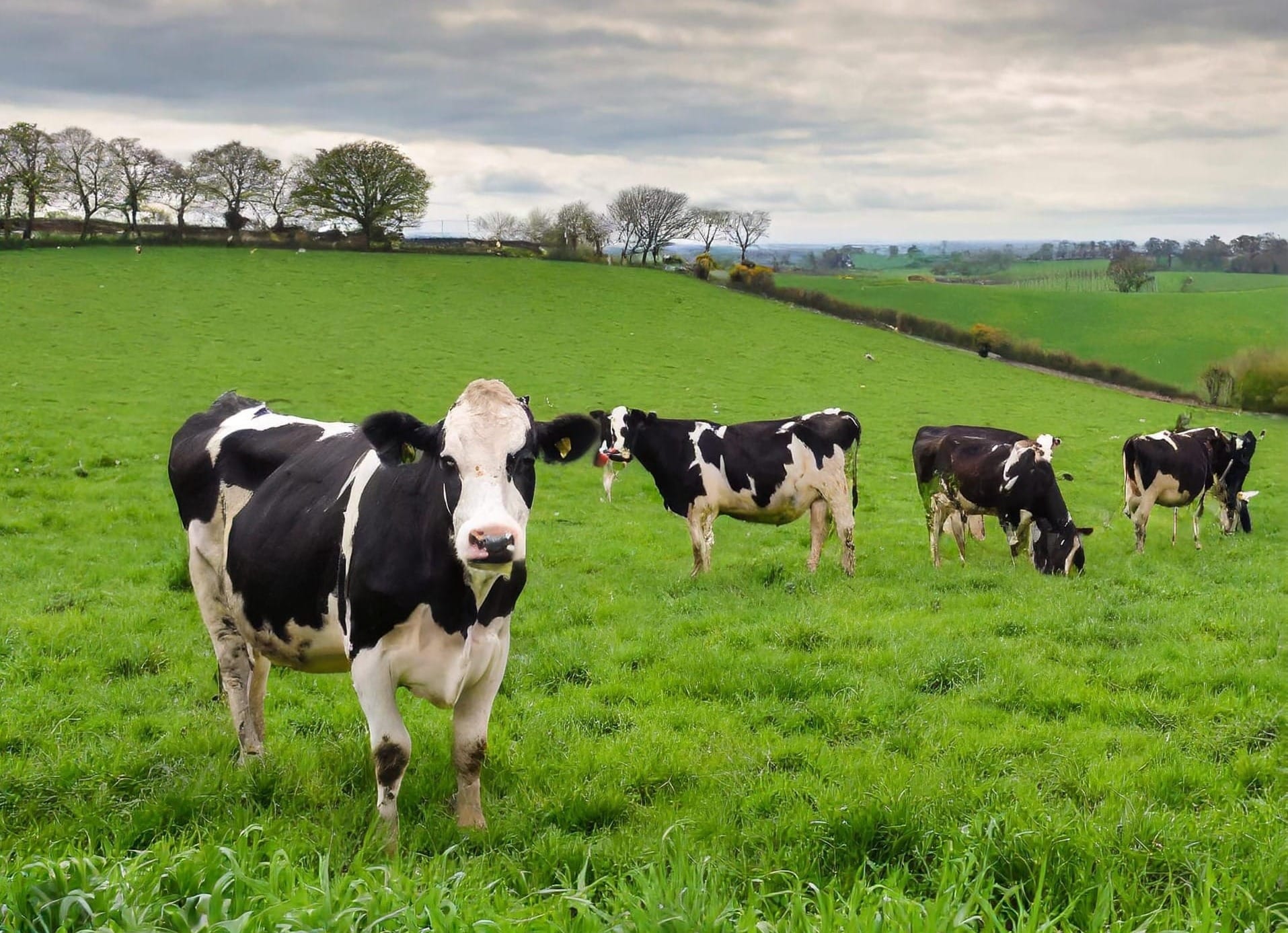The Dairy Dilemma: Navigating the Nutrition Landscape

Dairy - friend or foe? In the ever-evolving world of nutrition, this age-old debate has taken centre stage. While dairy offers a calcium-rich boost, a growing population grapples with lactose intolerance symptoms, driving the search for alternatives. Amidst clashing opinions and dietary dogmas, making an informed choice can feel like a minefield.
This comprehensive guide navigates the dairy dilemma, unpacking the nutritional benefits while shedding light on lactose woes and plant-based options. Armed with the latest dietary guidelines and scientific insights, you'll confidently chart a course aligned with your unique needs – one bite at a time.
What are we Discussing in this Article?
- Dairy Products: Dairy products are a rich source of essential nutrients like calcium, protein, and vitamin D, which support bone health, muscle function, and overall well-being.
- Lactose Intolerance: Lactose intolerance is when the body has difficulty digesting lactose, leading to uncomfortable symptoms. There are four stages of lactose intolerance, each with different causes and severity levels.
- Managing Lactose Intolerance: Individuals with lactose intolerance can manage their symptoms by consuming smaller portions, opting for lactose-free or low-lactose varieties, and incorporating lactase enzymes.
- Alternatives to Dairy: For those seeking alternatives, plant-based options are available including fortified non-dairy milk, leafy green vegetables, and certain nuts and seeds.
- Dairy Substitutes: Dairy substitutes include plant-based milk, vegan margarine and butter, dairy-free yoghurt, vegan cheese, and vegan ice cream and desserts. It is essential to read labels and consider factors like added sugars, fillers and protein content.
- Consulting Healthcare Professionals: If you have concerns about your dairy intake or lactose intolerance, consult a healthcare professional or registered dietician for personalized guidance.
- Weight Loss and Dairy: Dairy products are not inherently bad for weight loss, but some high-calorie and high-fat dairy products may contribute to weight gain if consumed in excess. Balancing dairy intake with other nutritious foods and maintaining a calorie deficit is essential for weight loss.
Importance of Dairy Products
Lactose Intolerance - Research and Recommendations
Recent research has shed light on the complexities of lactose intolerance and dietary guidelines for managing nutrient requirements. Some studies suggest that moderate consumption of dairy products may be tolerated. However, others advocate for exploring alternative sources of essential nutrients.
Alternatives to Dairy Products
Fortunately, for those seeking alternatives to dairy products, there are plant-based options available. Fortified non-dairy milk, leafy green vegetables, and certain nuts and seeds can provide valuable sources of calcium and other vital nutrients. However, it is essential to consider individual dietary preferences, allergies, and overall nutritional needs when selecting suitable alternatives.
Dairy substitutes are alternative products that can replace traditional dairy items such as milk, cheese, butter, and yoghurt. These alternatives are often plant-based and can be made from nuts, seeds, grains, and legumes. Some common dairy substitutes include:
- Plant-based Milk: These are alternatives to cow's milk and can be made from soy, oats, almonds, coconut, rice, cashews, hazelnuts, peas, and hemp. Each type has its unique taste and nutritional profile, so it's essential to read labels and choose the one that best suits your needs.
- Vegan Margarine and Butter: Several vegan spreads on the market mimic the taste and texture of dairy butter, making them suitable for baking and spreading on toast.
- Dairy-free Yoghurt: Many brands offer vegan yoghurt from soy, coconut, almond, or other plant-based ingredients. These yoghurts can be used in recipes or enjoyed as a snack.
- Vegan Cheese: There are various dairy-free cheese alternatives available, including plant-based Parmesan, Mozzarella, and other classic cheeses. These can be used in recipes or as toppings for dishes like pasta.
- Other Dairy Substitutes: Some people use coconut oil, olive oil, avocados, or bananas as butter alternatives in baking, while others use nutritional yeast for a cheesy flavour.
When choosing dairy substitutes, it is essential to read labels and consider factors like added sugars, fillers, and protein content. Some alternatives may not provide the same nutritional benefits as dairy products, so it's crucial to ensure you get adequate nutrition from other sources in your diet.
Frequently Asked Questions
What are the 4 stages of lactose intolerance?
Lactose intolerance is when the body has difficulty digesting lactose, the sugar in milk and dairy products. There are four stages of lactose intolerance:
- Stage 1: Primary Lactase Deficiency: This is the most common form of lactose intolerance and occurs when the body naturally produces less lactase, the enzyme responsible for breaking down lactose.
- Stage 2: Secondary Lactase Deficiency: Caused by illness, injury, or surgery that damages the small intestine, reducing lactase production.
- Stage 3: Developmental Lactase Deficiency: This type of lactose intolerance occurs in infants born with low lactase levels or develop low levels shortly after birth.
- Stage 4: Congenital Lactase Deficiency: This rare form of lactose intolerance is inherited and affects infants from birth, causing severe symptoms.
2. Why are people avoiding dairy?
People avoid dairy for various reasons, including:
- Dairy Allergies: Some people are allergic to dairy proteins and must avoid all dairy products to prevent an allergic reaction.
- Dietary Preferences: Some individuals avoid dairy for personal or ethical reasons, such as veganism or environmental concerns.
- Health Concerns: Some believe dairy products contribute to inflammation, acne, or other health issues, although scientific evidence is mixed.
- Lactose Intolerance: Many individuals cannot properly digest lactose, leading to uncomfortable symptoms such as bloating, diarrhoea, and gas.

3. Should I stop eating dairy?
Whether or not to stop eating dairy depends on lactose intolerance, dairy allergies, dietary preferences, and overall nutritional needs. If you have concerns about your dairy intake, it's best to consult with a healthcare professional or registered dietitian for personalized guidance.
4. Why is dairy bad for you when trying to lose weight?
Dairy products are not inherently bad for weight loss, as they can provide essential nutrients like calcium, protein, and vitamin D. However, some dairy products, such as cheese and ice cream, can be high in calories and saturated fat, which may contribute to weight gain if consumed in excess. Try to balance dairy intake with other nutritious foods and maintain a calorie deficit if trying to lose weight.
Conclusion
Navigating the dairy dilemma requires a nuanced approach that balances the nutritional benefits of dairy products with individual dietary needs and preferences. While dairy products can be an excellent source of essential nutrients, lactose intolerance and other dietary considerations may necessitate exploring alternative options. Consulting with healthcare professionals and registered dietitians can provide personalized guidance, ensuring a balanced and fulfilling nutritional journey.





